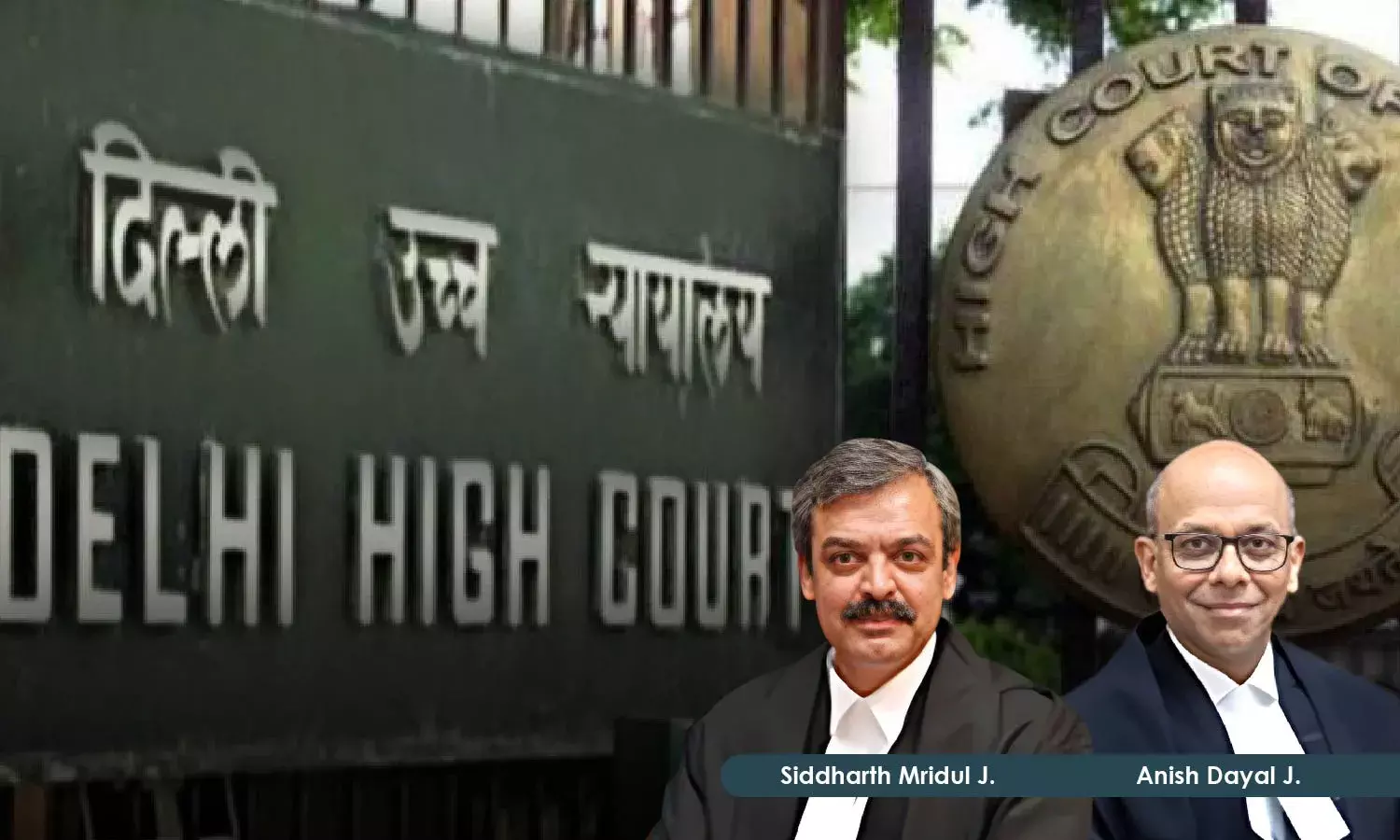Possibility That He Was Part Of Plan To Trigger Terrorist Activity Using Explosives Causing Life Loss: Delhi HC Rejects Appeal Of UAPA Accused

The Delhi High Court has rejected the appeal filed by an accused under the Unlawful Activities Prevention Act, 1967 (UAPA) saying that there is a possibility that he was a part of the plan to trigger terrorist activity by using bombs and explosives causing loss of life.
An appeal was filed under Section 21(4) of the National Investigation Agency Act, 2008 (NIA Act) read with Section 43D(5) of the UAPA seeking setting aside of the order passed by the ASJ whereby the appellant’s application for grant of regular bail was dismissed.
A Division Bench of Justice Siddharth Mridul and Justice Anish Dayal held, “There is a reasonable possibility that the appellant was one of the links in the network of people who were cognizant of the plan to trigger terrorist activity by using such bombs and explosives and causing loss of life. The fact that he was the weakest link or a substantial link is an issue which would be proven through trial by the prosecution. At the stage when the accused would be required for the purposes of framing of charges, this Court is of the opinion that he should not be released on bail.”
Advocate Kartik Venu appeared on behalf of the appellant while APP Laksh Khanna appeared on behalf of the State.
Factual Background -
The appellant was arrested and was in custody for about 20 months as on the date of the filing of the appeal, and was not released for any period in the interim. The FIR was registered based on a reliable input received regarding a terror module planning a serial Improvised Explosive Device (IED) Blasts. As per the input, a group of entities were planning to undertake serial IED Blasts in India for which such multiple IEDs were arranged from unknown sources and apparently at an advance stage of preparation.
It was suspected that an Okhla, Delhi based entity was an important part of this module having associates in various parts of the country including Uttar Pradesh and Maharashtra. This input was verified and corroborated through different sources and it emerged that a deep-rooted conspiracy had been hatched by the terror module with its operatives in India to carry out the blasts. An in-depth investigation was lodged and the FIR was accordingly registered under Section 120B IPC.
The High Court in view of the above facts observed, “It is not prima facie evident at this stage that the appellant was merely a intermediary without the knowledge of either the contents of the bag that he was meant to secure at his residence, or of the intent of the various co-accused who have entrusted him with the bag and were in touch with him. It would be quite natural to assume that somebody who has been entrusted with a bag to be kept at his residence would inquire and confirm the contents of the said bag.”
The Court said that there are reasonable grounds for believing that the accusation against the appellant is prima facie true and consequently, the conditions in Section 43D (5) UAPA stand satisfied.
Accordingly, the High Court dismissed the appeal.
Cause Title- Mohd. Amir Javed v. State (NCT of Delhi) (Neutral Citation: 2023:DHC:6759-DB)


